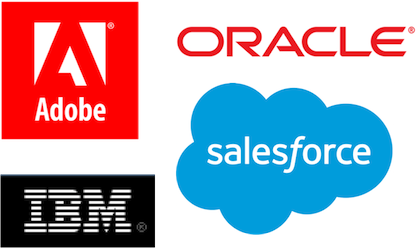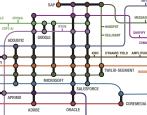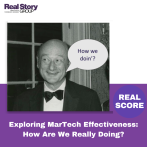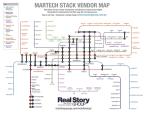Myths That MarTech Vendors Tell Themselves
Last year I led an exposé of "Ten Myths MarTech Vendors Tell." (You can stream the recording here.) It got me thinking: myths are things that we tell ourselves to account for things we don't know or understand. Not surprisingly major marketing cloud vendors tell themselves a lot of myths. Should you care? I think so.
The "Big Four" marketing cloud vendors — Adobe, IBM, Oracle, and Salesforce — each like to tell a story around what they're about. Sometimes those stories are real, but oftentimes they're mythical. For more in-depth evaluations of these four and twenty more MarTech players, check out RSG's hard-hitting vendor evaluation report.

Let's take a look at each.
Adobe
Adobe likes to believe that it offers cutting-edge technology specially geared to the creative marketer.
Like all myths, there is some truth to this story. In reality, Adobe will push the envelope on new technology, but also has a tendency to chase technical fads in ways that will give your architects whiplash.
Also, the Adobe clouds tend to actually be comprisd of a mish-mash of (mostly acquired) on-premise and hosted products. Some are friendly to creative marketers; some are not. Some offer highly advanced features; some do not. To be fair, the other three vendors mentioned here push much the same myth.
IBM
Big Blue likes to tell itself that it can solve any MarTech challenge that you could throw at them. This is partly true, but mostly mythical.
IBM surely sells a lot of digital marketing tools. In fact so many tools that IBM itself often can't tell them apart. Historically most IBM platforms were designed to scale for large B2C environments, though less so now that Big Blue has sold off it's Unica portfolio to HCL.
But IBM also has serious gaps in its portfolio, and the firm consistently soft-pedals the amount of services work it takes to customize and integrate its tools into a coherent solution.
The vendor's latest myth — that "Watson" will drive advanced marketing agendas — can be found in IBM's new naming conventions, but not so much in the tools themselves.
Oracle
Oracle traditionally evolved a kind of hero mythology around the idea of an invincible database. If you build such a database tier, the myth goes, you will simplify the deployment of your user-facing middleware above it. That's why we used to see "Oracle shops" that make a huge investment in database tooling and then adopt the firm's business software almost as an afterthought.
Unfortunately, Oracle's business software is not so heroic, especially in the era of cloud, where data persistence has gotten fairly commoditized.
The vendor's MarTech suite is now an unusual conglomeration of acquired tools and platforms with mostly disjointed user experiences, a surprising volume of technical debt, and no apparent center of gravity.
Salesforce
Salesforce likes to tell itself that its cloud model enables them to offer dynamic, fast-evolving solutions for sales and marketing teams.
In reality, outside of its Sales Cloud, Salesforce has struggled to innovate, and tends to acquire other vendors rather than significantly enhance its own marketing suite. This acquisition model has proven tricky, because Salesforce's cloud architecture (which predates public cloud players like Amazon, Microsoft, and Google) is quite proprietary and quirky — not an easy base on which to bolt other solutions (c.f., ExactTarget).
Salesforce excels in delivering services to enterprise employees (i.e., salespeople), but the company cannot boast the same consistency in delivering public-facing solutions.
What You Should Do
Myths are important because they allow cultures and institutions to share common stories. They often have a foundation in the truth, but in a commercial context, they can become quite disconnected from reality.
If you think marketing technology is important, then you'll want to keep it real. RSG can guide you to the right decisions for your MarTech stack. Ping one of RSG's customer advisors for more details.








